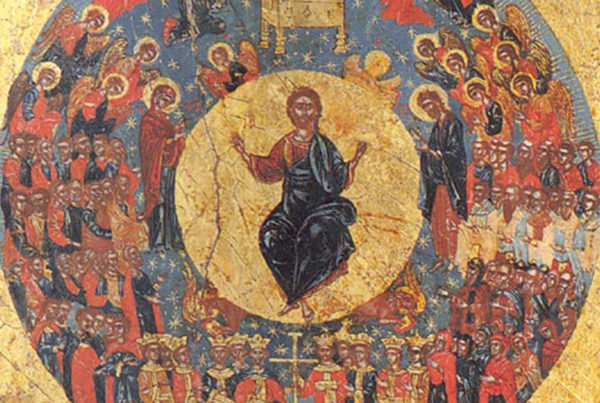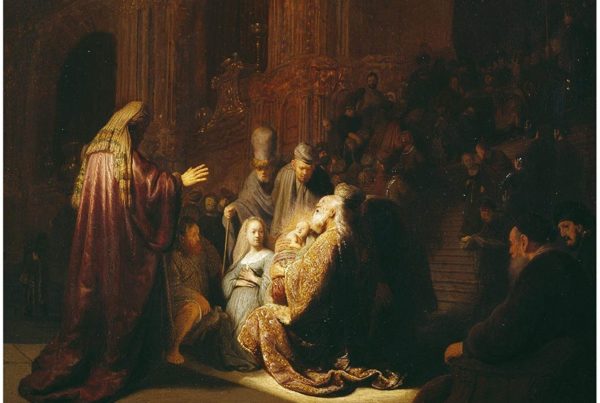Ol’ Clive Staples has always been one of my favorite authors. From the time I first stumbled across a tattered copy of Mere Christianity among my parents’ library in high school, straight through college and seminary, and right up to today, I have always found Lewis to be bold, challenging, inspiring, and breathtakingly clear on some of the most important issues and questions for Christian faith. I have read nearly every book he wrote (most of them multiple times), return to him regularly for clarity, and if I had to pick one author who most nearly captures my own moral and spiritual vision, it would be Lewis, in a rout.
One of my favorite of his works is a book that seemed to experience a new resurgence of popularity in recent years with the release of Rob Bell’s Love Wins, which, as everyone knows, sparked a bit of a fracas within evangelicalism on the age-old questions of universalism, judgment, the possibility of post-mortem salvation, and the like. The book, of course, is The Great Divorce, an absolutely stirring read in which a busload of the damned are given an opportunity to venture into heaven. The tale is utterly profound, piquant, unforgettable… I’ve read it no less than ten times (seriously) but hadn’t read it in a few years, and so decided to give it a run again this weekend. To my great delight, I found it to be more profound (and nourishing for the soul) than I even remembered.
But also, I thought, this book is profoundly misunderstood, misread, and misapplied. In particular, as I read it, I thought of how often I have heard The Great Divorce trotted out as evidence that Lewis believed in things like purgatory and the possibility of post-mortem salvation. From where I stand, it seems to me that the book often becomes a champion of a sort of weak-willed, half-hearted, half-committed universalism where we’re permitted to hold a vague belief that everyone is somehow magically alright in the end (a tolerant and loving position, no doubt). After all, isn’t that what the tale is all about?
Not if you read it closely. A few quotes to make my point, and then a challenge.
From the preface:
I beg readers to remember that this is a fantasy. It has of course–or I intended it to have–a moral. But the transmortal conditions are solely an imaginative supposal: they are not even a guess or a speculation at what may actually await us. The last thing I wish is to arouse factual curiosity about the details of the afterworld.
That quote alone should be enough to put the matter to rest. Lewis is imploring readers to understand that what he is NOT doing, above all, is engaging in some kind of speculation as to the nature of the afterlife. Rather, what he is doing is opening up the reader’s imagination to the nature of reality using this little fantasy as a lens through which to understand the choices the lay at the feet of all humanity—a point he makes over and over again throughout the work.
An altogether excellent example of this in chapter 9, in one of his memorable exchanges with the great George MacDonald (who himself was, or is thought to be anyway, a universalist), he says:
“But there is a real choice after death? My Roman Catholic friends would be surprised, for to them souls in Purgatory are already saved. And my Protestant friends would like it no better, for they’d say that the tree lies as it falls.”
MacDonald replies:
“They’re both right, maybe. Do not fash yourself with such questions. Ye cannot fully understand the relations of choice and Time till ye are beyond both. And ye were not brought here to study such curiosities. What concerns you is the nature of the choice itself: and that ye can watch them making.”
And once again, in his final exchange with MacDonald:
“A dream? Then—then—am I not really here, Sir?” “No, Son,” said he kindly, taking my hand in his. “It is not so good as that. The bitter drink of death is still before you. Ye are only dreaming. And if ye come to tell of what ye have seen, make it plain that it was but a dream. See ye make it very plain. Give no poor fool the pretext to think ye are claiming knowledge of what no mortal knows. I’ll have no Swedenborgs and no Vale Owens among my children.” “God forbid, Sir,” said I, trying to look very wise.
I could multiply examples from the book that continue to make this point, but few are as clear as the ones I have given. And the much larger point here is this: when one reads The Great Divorce with an honest and open mind, the impression one gets is NOT that Lewis is trying to allay our fears about the afterlife and comfort us that all—and all people—will be well. That, I think, is what progressive Christianity is trying to make Lewis say. It is, in my opinion, to co-opt Lewis for the spirit of the age, in which Christianity loses its teeth.
No, what Lewis is doing is altogether different—he is, read within the context of his own moment in history—issuing a prophetic summons and challenge to the spirit of his age. Reality, for Lewis, is not malleable to human whims and fancies. God is not a figment of our imagination. Christ is no mere symbol of human magnanimity and goodwill. The Holy Spirit is not a metaphor for our greatest hopes, dreams, and aspirations. No. No. No.
Reality is as hard as nails
For GOD is the great reality of the universe
And in Christ men and women everywhere are called to bend themselves to that reality, or be lost forever
Lewis was a mountain of a man, who stood like a banner on a hilltop, imploring everyone within the range of his voice (thoughtfully, carefully, winsomely, imaginatively, no doubt) to see through his eyes a burning vision of God, the Holy One, who with and through his Son Jesus held out the only possibility of salvation. The character of his ministry has, from where I stand, almost nothing in common with the caricatures of him so prevalent in progressive Christianity. He cut against the grain, resisted the tide of his time. It is for this reason I think his legacy remains so compelling. Like his contemporary Bonhoeffer, in Christ Lewis found a way to say “no.” He saw what others could not see, in large part because of his deep understanding of the Church’s perennial and everlasting message.
That is not at all to make the venerable Oxford and Cambridge don out to be some kind of narrow-minded fundamentalist. He was thoughtful and generous enough, and versed enough in historic Christian orthodoxy to embrace the possibility that some may, in the end, be saved quite apart from a direct knowledge of Christ (though, even so, always through Christ). But so what? I mean, really. That has always been a valid position within Christianity—that God, being good and just will judge people fairly, based on what they knew in this life, in light of the light and truth that they had. It is a sometimes disputed position, no doubt. But always valid. Heck, even Billy Graham, the arch-evangelical, in an interview with Larry King about the fate of those who had never heard the gospel, was quoted as saying, “I can only say with Abraham: will not the judge of all the earth judge rightly?” There just isn’t news here. Who cares? His embrace of that idea was just an outworking of his generous and thoughtful Christianity. But it was not, is not, the center of his importance as an apologist for Christianity.
What I think would be better, and certainly more accurate to the historic and literary legacy of Lewis, is to see him (at least in part) as a prophetic figure who resisted the corrosive tendencies within the church and society that he found himself within and found a way, based on the burning and hard-as-nails reality of God in Christ, to provoke people to repentance and faith. His message had teeth, which is why it endures.
Does ours?



I think you’ve landed not just on the central point of Great Divorce, but the fundamental battle of Lewis’ life. “Reality is as hard as nails…” He believed the loss of this simple confession was the undoing of humanity. The Abolition of Man laid out his argument along these lines devastatingly. I’ve always found it strange when people find comfort in GD. As it strikes me as Lewis’ most terrifying work – What would be like for reality to become increasingly intolerable?
Wonderful post. Helpful in thinking through Lewis’ work. I loved the post and think you’ve pointed out not simply something important in Lewis’ writing, but I would argue you’ve pointed out the most important thing in his writing.
Thanks BB! You were the one who first turned me onto the Abolition of Man…it set his whole body of work in a new light for me…I will always be grateful to you for that…much love…
So good! I love what Lewis said later, in a letter written to a friend in 1956:
“No, I don’t wish I knew Heaven was like the picture in my Great Divorce, because, if we knew that, we should know it was no better. The good things even of this world are far too good ever to be reached by imagination. Even the common orange, you know: no one could have imagined it before he tasted it. How much less Heaven.”
Couldn’t agree more with BB. Reality is hard as nails… thanks for the clarity Andrew. Made me think of this CS quote: “The whole point in seeing through something is to see something through it.” Since it’s not in our capacity to see that “something” in regard to this topic, it’s enough to say, God judges rightly. I like how you point out his message has bite since it’s deeply personal. Its focus is not on ho-hum abstraction but on the urgency of making a deliberate choice.